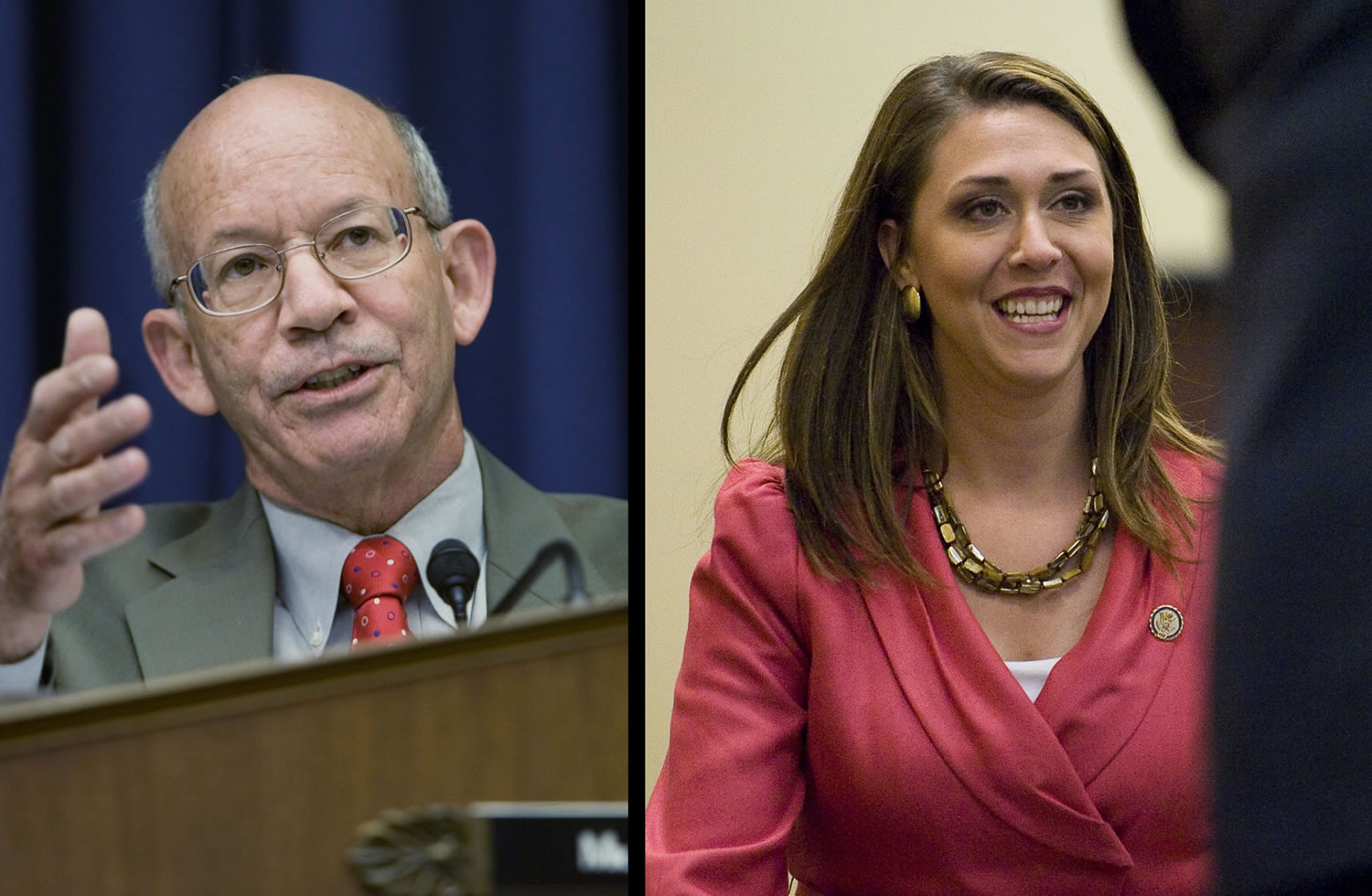A move by Congresswoman Jaime Herrera Beutler to stop federal transit funding for the Columbia River Crossing without a local vote failed Thursday in the House Transportation and Infrastructure Committee.
The Camas Republican has long said she can’t throw her support behind the controversial $3.5 billion project, in particular the light rail component, without a public vote. However, her move Thursday before the committee is the first time she’s attempted to block light rail unless there is public approval of the project.
The proposed project would replace the Interstate 5 bridge, extend light rail to Clark College, and rebuild freeway interchanges on both sides of the Columbia River.
Her attempt to insert language in a bill that would require the public vote failed. Oregon Democratic Congressman Peter DeFazio pulled the language for debate, and succeeded in getting it pulled from the list of amendments, finding majority support in the Republican-dominated committee.
He called the vote an earmark, which are currently prohibited in the House.
“I’m not sure what she’s trying to do here, except to perhaps excite people and appeal to a certain constituency in Vancouver — I have no idea if it’s a majority or minority,” DeFazio said, adding such a referendum on the project would be the purview of local authorities. “For us to dictate that a city hold a referendum is outrageous.”
Herrera Beutler shot back that the wording –while it does not apply to any other current project in the United States — is not an earmark, drawing catcalls from Democrats. She also asked that DeFazio not attribute motives to her amendment.
“You’re darn straight I am going to do everything in my power to make sure the people I represent are asked to approve whether or not they’re going to put their hard-earned tax dollars into a federal program,” Herrera Beutler said. “People are going to be asked to pay for maintenance and operation (of light rail) … those people who are going to be required to pay this money have a right to say ‘Yes, we want this project,’ or ‘No, we don’t want this project.’ “
Committee chairman Rep. John Mica, R-Florida, supported his colleague, saying that since the amendment would apply to future projects as well, it isn’t an earmark.
Herrera Beutler worked with Mica to insert language into Mica’s Manager’s Amendment that would have mandated multi-jurisdictional projects of more than $1 billion that also get federal and local funding go to a public vote before Federal New Starts Transit money would be granted. However, the wording made it clear that in this case, only Clark County would need to hold the vote.
“The public referendum shall include jurisdictions responsible for providing such share of funding only where the jurisdiction does not have an existing fixed guideway public transportation system,” the amendment read.
The CRC is relying on $850 million in Federal New Starts Transit grants to pay for the construction of light rail, while local money would be used for operations and maintenance. The C-Tran Board of Directors has indicated it will hold a vote on a sales tax increase on the matter this November.
Ultimately, Mica called for a vote on pulling the wording requiring a referendum, his comments uncannily reflecting the mood about the megaproject 3,000 miles away.
“Things are a little touchy here,” he said. “I want parties to go back and try and resolve the issue. We could go on and on here.”
DeFazio said in a phone interview that the amendment was “definitely snuck in” to the bill markups scheduled for Thursday, saying no one saw Mica’s amendments until 10:30 a.m. Thursday as everyone was gathered for debate.
He said Mica accepted his amendment pulling Herrera Beutler’s legislation because he recognized potential problems with it down the road.
“I don’t think we want to be holding referendums up and down the highway system every time we need to do critical infrastructure programs,” DeFazio said.
Herrera Beutler said in a later interview that local votes are exactly what should happen when federal projects require local residents to pay for them.
“My pushing this language was to inject to the debate the fact that locals across the country … deserve a chance to vote on it,” she said.
The pair’s debate highlights key differences in beliefs surrounding the CRC.
Herrera Beutler, like many critics of the project, said that the bridge would not be undone by removing light rail.
“There would be engineers … who would see their project change, it doesn’t mean we won’t get federal money,” she said. “If enough people in our community say ‘no,’ you better believe that we shouldn’t have the project.”
However, DeFazio said that without it, the project would be unravelled. The Federal Record of Decision, giving the final go-ahead to the project’s environmental plans — that outline light rail as a component of the CRC — was handed down in December. It’s likely the federal decision would have to be revisited if light rail were removed.
(Without light rail) “the whole project has to go back to the drawing board, that’s 10 years,” DeFazio said.
Planning for the CRC has taken more than a decade, and costs have crested $140 million.
Andrea Damewood: 360-735-4522; http://www.twitter.com/col_cityhall; andrea.damewood@columbian.com.



